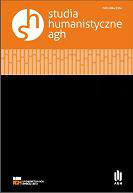ARNOLD GEHLEN JAKO ANTY-ROUSSEAU
ARNOLD GEHLEN AS ANTI-ROUSSEAU
Author(s): Anna SzklarskaSubject(s): Social Sciences, Sociology, Sociology of Culture
Published by: Wydawnictwa AGH
Keywords: Rousseau; Gehlen; nature; culture; institutions
Summary/Abstract: The article makes an attempt to explain if Arnold Gehlen was reasonable in de ning himself as anti-Rousseau, and also why this famous German thinker considered Jean Jacques Rousseau, who lived two centuries earlier, his greatest philosophical opponent. Gehlen thought that the tendency towards degeneration is primal for human beings. Therefore in his opinion people need institutions to redirect the excesses of the consuming impulse and the sexual impulse: there is a need to stabilize what is excessive and unstable in humans. For Gehlen there is a reason for this exceptionally pessimistic view on humankind, which is by nature prone to degradation. The German philosopher is driven by the need to justify the institutions, which if questioned, cannot save us from oncoming chaos. The main context for the author’s analysis are different ways of perceiving and understanding the spheres of nature and culture and their interference with human existence by such philosophers as Rousseau, Gehlen, Arendt, and Rand. For Gehlen, culture is not a natural state. It needs maintenance, it is constantly endan- gered, and its fall is inevitably connected with the fall of institutions. The anti-Rousseau philosophy proclaims a return to culture. It is also explained what hides behind Gehlen’s thesis, which states that we live in times that are culturally unproductive and that contemporary civilization reveals all the weaknesses of human nature.
Journal: Studia Humanistyczne AGH
- Issue Year: 14/2015
- Issue No: 1
- Page Range: 119-136
- Page Count: 17
- Language: Polish

